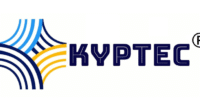Ever paused mid-sentence, searching for the right word while your brain does a slow-loading wheel?
If speaking English feels like that—especially at work, interviews, or even at the neighborhood café—you’re not alone.
The good news: the right training makes fluency feel natural, not forced.
This guide breaks down the best English speaking courses in Thane, what to expect from each, and why Sachmaas Academy is a top choice for busy learners who want real results.
What you’ll learn:
-
The most effective types of spoken English classes in Thane
-
How to pick a course that fits your goals and schedule
-
What sets Sachmaas Academy apart: structured programs, flexible options, and measurable progress
-
A simple 4-week plan to kick-start your fluency—even before class starts
Keywords included: English speaking courses in Thane, spoken English classes, Sachmaas Academy, communication skills, business English, interview preparation
Who These Courses Are For (and Why They Work)
Thane has a wide range of spoken English classes catering to:
-
Working professionals who want confident meetings, emails, and presentations
-
College students preparing for interviews or group discussions
-
Homemakers and entrepreneurs who want smoother day-to-day communication
-
Anyone who understands English but hesitates while speaking
Why courses help:
-
You get structured speaking practice (not just grammar drills)
-
Trainers correct mistakes in real time
-
You build vocabulary for real-life situations
-
Small groups reduce pressure and build confidence fast
Result: You stop translating in your head and start thinking in English.
The Standout: Sachmaas Academy (Thane + Online)
If you want a program that balances structure, flexibility, and proven outcomes, Sachmaas Academy is a strong first choice among English speaking courses in Thane.
What makes Sachmaas Academy different:
Structured learning paths
-
Foundation Fluency: Pronunciation, basic grammar, everyday conversation
-
Confident Communicator: Vocabulary building, error correction, real-life role plays
-
Business English Pro: Meetings, presentations, emails, negotiation language
-
Interview Accelerator: HR questions, STAR method answers, mock interviews with feedback
Flexible schedules
-
Weekday and weekend batches
-
Morning/evening slots
-
Online and hybrid formats for Thane learners who commute
Proven results
-
Regular speaking evaluations to track fluency and accuracy
-
Personalized feedback with action steps each week
-
Practical scenarios: role plays, debates, and presentation sprints
Small-group focus
-
More speaking time per learner
-
Faster error correction
-
Less stage fright, more real confidence
Who it’s for:
-
Professionals who need clear, confident workplace English
-
Students who want interview-ready communication
-
Anyone who wants to speak without pausing or second-guessing
🔗 Explore programs, book a trial, or enroll at: https://sachmaas.com/
🔗 Browse course details: https://sachmaas.com/our-courses/
Top Types of Spoken English Classes in Thane
Different goals need different formats. Here are the most effective options—and how to choose the right one.
1) Level-Based Fluency Courses
Best for: Learners who want to strengthen basics and speak without hesitation
What to expect:
-
Pronunciation drills (to fix fossilized errors)
-
Everyday conversation frameworks
-
Grammar clarity without jargon
-
Guided speaking time each session
Outcome: More natural, everyday fluency
💡 Tip: Ask how much speaking time you get per class. Aim for 50% or more.
2) Business English for Professionals
Best for: Team leads, sales reps, managers, consultants
What to expect:
-
Presentation practice with slides and feedback
-
Email templates and tone correction
-
Meeting language: agreeing, disagreeing, clarifying
-
Soft-skill polish: tone, brevity, confidence
Outcome: You sound professional, clear, and concise—no overthinking needed
3) Interview-Focused Courses
Best for: Final-year students and job seekers
What to expect:
-
Common HR and technical question frameworks
-
Elevator pitch, profile summary, and “Tell me about yourself”
-
Mock interviews with line-by-line correction
-
Group discussion practice and body language tips
Outcome: You speak to the point, with confidence and structure
4) Accent and Pronunciation Labs
Best for: Learners who are fluent but unclear or heavily influenced by local accents
What to expect:
-
Sound mapping for problem areas (v, w, th, r)
-
Stress and intonation practice for natural rhythm
-
Shadowing models to build muscle memory
Outcome: Clarity improves; you’re easier to understand without sounding unnatural
5) Crash Courses for Fast Results
Best for: Tight schedules, urgent needs (interviews, presentations)
What to expect:
-
Short sprints: daily practice for 2–4 weeks
-
Focused outcomes: presentation script, interview readiness, specific scenarios
Outcome: Quick, targeted improvements you can use right away
What Good Spoken English Classes Include
Look for these features to ensure quality training:
-
Placement assessment: Start at your true level to avoid boredom or overwhelm
-
Live speaking practice: Role plays, debates, and presentation rounds
-
Constructive feedback: Specific, teachable corrections—not vague “good job”
-
Real-life vocabulary: Workplace, travel, networking, customer interactions
-
Progress tracking: Clear milestones for fluency, pronunciation, and confidence
-
Small batches: More time to speak equals faster improvement
💡 Pro tip: If you’re not speaking in every class, it’s not a spoken English class—it’s a lecture.
Sample Weekly Plan at a Strong Institute (e.g., Sachmaas Academy)
-
Day 1: Needs analysis + speaking baseline + pronunciation drills
-
Day 2: Functional language for work (clarify, escalate, summarize) + role play
-
Day 3: Grammar in action (tenses, articles, prepositions) + guided conversation
-
Day 4: Presentation practice + feedback template (three strengths, three fixes)
-
Day 5: Group discussion + vocabulary booster + weekly progress review
This structure ensures you practice all four pillars: sound, structure, vocabulary, and confidence.
Real Outcomes: What “Progress” Looks Like
After 3–4 weeks:
-
Fewer long pauses and filler words
-
Clearer pronunciation and better intonation
-
Strong intros, smoother transitions, and confident conclusions
-
A 1–2 level jump in speaking assessments when paired with daily practice
After 8–12 weeks:
-
Polished presentations with tighter structure
-
Natural small talk and networking language
-
Error-free emails and meeting notes
-
Interview answers that sound both confident and authentic
How to Choose the Right Course in Thane
Ask these before you enroll:
-
How many learners per batch? (Ideal: 6–12 for speaking-focused classes)
-
Is there a level assessment? (Avoid one-size-fits-all)
-
What’s the speaking-to-listening ratio? (Aim for at least 50% speaking time)
-
How is progress tracked? (Look for weekly feedback and assessments)
-
Are classes flexible? (Weekday/weekend/online options help you stay consistent)
-
Is there a trial class? (You’ll know within 20 minutes if the teaching style fits you)
Rule: If a course offers clear milestones and frequent speaking practice, you’ll improve faster—period.
4-Week At-Home Booster Plan (Pairs with Any Course)
Consistency matters more than intensity. Try this plan alongside your classes.
Week 1: Warm up your mouth and mind
-
Daily: 10 minutes of pronunciation drills (v/w, th, r)
-
Speak for 2 minutes on a simple topic: weekend, movie, work task
Week 2: Build structure
-
Use a simple framework: Opening → 2–3 points → Example → Wrap-up
-
Record yourself twice a week; note filler words and fix them
Week 3: Grow vocabulary that you’ll use
-
Pick 10 workplace phrases; use 3 per day in conversations or emails
-
Read a short article daily; summarize it in 60 seconds out loud
Week 4: Practice under pressure
-
Do two mock presentations (3–5 minutes) with slides or notes
-
Join one live discussion (online meetup or class group)
👉 You’ll hear the difference by week two and feel it in meetings by week four.
Fees, Format, and Time Commitment: What to Expect
While fees vary by provider and batch type, here’s a general sense:
-
Duration: 4–12 weeks depending on your level and goal
-
Frequency: 3–5 sessions per week (45–90 minutes each)
-
Format: In-center, online, or hybrid
-
Materials: Workbooks, pronunciation guides, vocabulary lists, and practice tasks
-
Support: Doubt-clearing sessions, progress reports, and optional 1:1 add-ons
⚠️ Note: Cheaper doesn’t always mean value. The real “cost” is time spent in classes that don’t give you speaking practice or feedback.
Why Many Learners in Thane Choose Sachmaas Academy
Three reasons keep coming up in feedback:
-
Structure that respects your time: Clear levels, focused sessions, and defined outcomes
-
Flexibility that fits your life: Multiple batch timings, online options, and easy rescheduling
-
Results you can feel: Better clarity, speed, and confidence—often within weeks
🔗 Explore courses, timings, and enrollment at https://sachmaas.com/
🔗 See program details: https://sachmaas.com/our-courses/
Quick FAQ: Spoken English Classes in Thane
How long until I see improvement?
-
Many learners notice changes within 2–4 weeks with consistent practice.
I understand English but hesitate to speak. Can this help?
-
Yes. A good course focuses on live speaking, confidence, and error correction.
Are online classes effective?
-
If batch sizes are small and sessions are interactive, absolutely.
I have a busy schedule. What’s my best option?
-
Choose flexible batches or hybrid classes. Sachmaas Academy offers both.
Conclusion: Your Next Step to Confident English
You don’t need “perfect” English to speak well—you need clarity, structure, and practice with feedback.
Pick a course that gets you talking from day one.
If you want structured programs, flexible schedules, and visible progress, start with Sachmaas Academy.
👉 Take the next step:
-
Browse courses and schedules
-
Book a trial session
-
Commit to 4–8 weeks—and hear the difference
🔗 Visit https://sachmaas.com/ and get started today.









